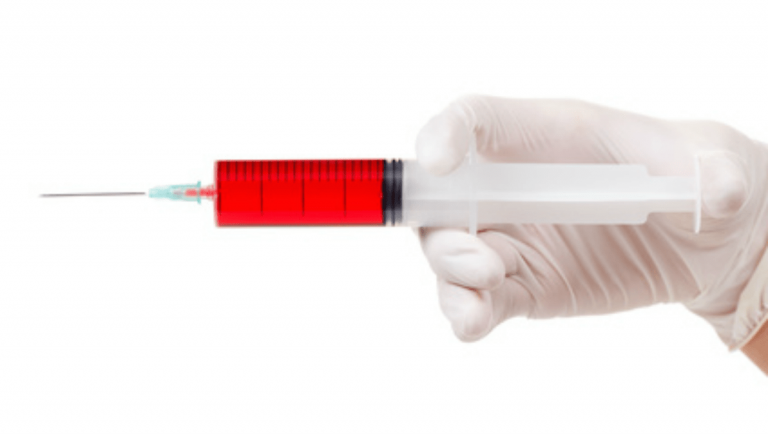The Medical Negligence Blog



Can you claim for organ removal?
Can you claim for organ removal if the procedure was done by accident, or where the organ was removed due to a surgical error?
You can claim for claim for organ removal where there’s medical negligence involved. Although it’s rare, it can happen. There have been incidents where organs have been mistaken for tumours, or where they’re removed due to incidental damage during a procedure.
Surgery comes with inherent risks. That being said, patients should not expect to suffer as a result of an error by a medical professional.

NHS staff shortages putting patients in danger
The prospect of increasing NHS staff shortages faced in England could put patients in danger and lead to increased cases of medical negligence.
The BMJ recently warned that there could be NHS staff shortages approaching the quarter of a million mark by 2030. The NHS has been warned by a range of leading experts that they need to improve staff recruitment and retention, or face worsening staff shortages.
A paper says that shortages in England could increase from the current figure of 100,000 to a staggering 250,000 in the next 12 years. The inability to attract and retain skilled employees from abroad could make this figure even worse.

Is breast surgery dangerous? As the cosmetic surgery industry continues to grow in popularity, it’s a common question that’s asked.
We’re not doctors or surgeons ourselves, so we can only talk about the dangers we see as lawyers. We’ve helped a lot of people claim compensation for breast surgery claims. In fact, we’ve recovered over £1.3m so far in claims for breast surgery cases alone.
We know the dangers in terms of a legal action for compensation. If you have been the victim of negligent breast surgery, that’s where we can step in.

Free prescription changes announced
In a bid to save some £265m a year, there are set to be free prescription changes to stamp out abuse of the system.
The aim of the changes are to tackle fraudulent free prescriptions that could be wasting millions in valuable resources. From patients not entitled to free prescriptions, to some pharmacists and dentists receiving payments for phantom procedures, it’s an issue that needs resolving.
As the NHS continues to struggle with underfunding, a lack of resources and staff shortages, we can’t have any avoidable waste in the system.

Poor systems lead to medical negligence cases
Poor systems can lead to instances of medical negligence cases. With the NHS still in the midst of funding problems, they’re being left behind.
Technology is great. It has helped industries to become far more efficient, and this includes the NHS. However, the continual funding “crisis” as some have labelled it is starting to cause problems. As a result of a lack of funding and investment, the NHS is getting left behind. Their systems and technology is outdated, and this is causing problems.
Ultimately, there’s a risk of medical negligence cases that arise out of the lack of up-to-date systems and tech.

Crackdown on hospital staff bullying incidents a welcome move
We welcome the move for a crackdown on hospital staff bullying incidents, as alarming figures have revealed the extent of bullying within the NHS.
At a time when NHS funding is already a problem, and the economy remains in an uncertain position because of Brexit, we need an efficient public health service. It’s therefore incredibly concerning to hear about alarming statistics over the extent of hospital staff bullying incidents that are going on.
A crackdown is now set to come into effect where hospital bosses will be held accountable – and even sacked – for failing to deal with bullying in the NHS.

Conspiracies and closing ranks in the Gosport Hospital deaths scandal
A former health minster spoke out recently over conspiracies and closing ranks in the tragic Gosport Hospital deaths scandal.
Former health minister Normal Lamb spoke about the “systematic failures” and NHS “closing ranks” over the tragedy, as well as a “conspiracy to cover this up”. He suggested that both the NHS and Whitehall had refused to face up to the reality of the tragedy which has led to potentially hundreds of premature deaths.
The evidence in the investigations has found what appear to be clear opportunities to have avoided potentially hundreds of deaths. How were these opportunities missed?

Concerns over staggering numbers of children prescribed antidepressants
There’s a real concern over the staggering numbers of children prescribed antidepressants in the UK as use of the drug continues to increase.
It’s understood that the number of children prescribed antidepressants is now at more than 70,000. Of this figure, some 2,000 are understood to be children of primary school age.
We’re already in an era where doctors are thought to be overprescribing medication. A great deal of this has been linked to funding constraints. The result is that more people are using medication when alternative treatment could help them more. On top of that, some people are becoming addicted to medication. In the case of children, what about the long-term effects of drug use as well?

Recall in relation to valsartan cancer risk
There’s been a recall during the summer over valsartan cancer risks that have been identified. A recall has been triggered by regulators.
The Medicines and Healthcare products Regulatory Agency (MHRA) has been involved in the recall process. The recall has been triggered over impurities originating from the manufacturing process in China. The impurities are understood to be linked to cancer.
Patients using heart medications that contain valsartan are being asked to speak to their doctor or pharmacist ASAP.

Delayed cancer diagnosis compensation on the rise
Delayed cancer diagnosis compensation claims could be set to increase. Recent figures have shown some of the worst referral rates on records, leaving patients at risk.
As a result of the continual NHS funding crisis, staff shortages for cancer care is apparently commonplace. Very few departments can reportedly boast that they have enough staff to properly help people, and the problem is only going to get worse.
Adding on external factors that increase the demand for cancer care, there’s every reason why patients should be worried.

HPV vaccine reduces cervical cancer
It’s understood that the HPV vaccine reduces cervical cancer, with a decrease of 86% seen in women aged between 16 to 21.
The recent government reports states that vaccinations to defend against the Human Papilloma Virus (HPV) 16 and 18 infections is working. These infections are known to cause the majority of cervical cancer cases.
The information published over the summer in the Journal of Infectious Diseases is welcome news. The data suggest that the HPV vaccination programme will lead to significant reductions in cervical cancer cases arising in the future.

You may be entitled to make a plastic surgeon compensation claim if the work you have had has not turned out to be as expected.
Plastic surgeon compensation cases can be difficult. This is why it’s vital that you instruct specialist medical negligence lawyers like us. Cosmetic procedures carry inherent risks, especially the more invasive procedures that many people are undergoing nowadays.
If you have suffered complications or you have ended up with an unexpected outcome, what are your rights?